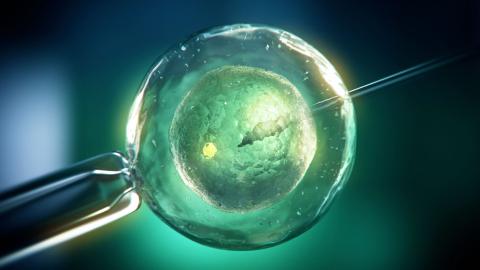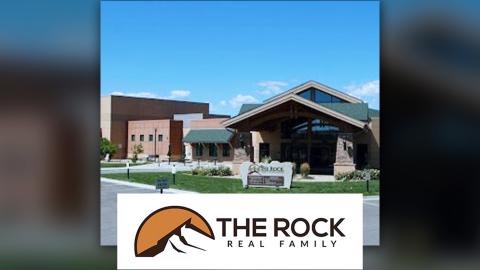
Southern Baptists Consider Opposing IVF, Says Procedure Poses 'Huge Moral Crisis'
The Southern Baptist Convention, which represents America's largest protestant denomination, may vote to take a stance officially opposing in vitro fertilization, or IVF, at its annual meeting this week.
In a column for World Magazine, Al Mohler, president of the Southern Baptist Theological Seminary said IVF procedures pose a "huge moral crisis." He's not the only faith leader expressing concerns about IVF.
However, while most Christians believe embryos created during in vitro fertilization are human life, some disagree over whether the practice should be changed or avoided altogether.
A top concern involves the morality of creating dozens of embryos per patient, implanting only some in the womb, and then either destroying the leftovers or saving them for future implantation, which often doesn't happen.
Dr. Jeff Barrows, an obstetrician and gynecologist who serves as the Senior Vice President of Bioethics and Public Policy for Christian Medical and Dental Associations told CBN News since life begins at fertilization, there is no difference in the value between a human embryo created in an IVF clinic and a human child, adding both deserve to be treated with a high level of dignity.
"If I were advising a Christian couple that was looking at IVF and felt that this was something that the Lord wanted them to do, I would say that one thing that they would request of their physicians would be that all created embryos be implanted," said Dr. Barrows.
Dr. Barrows said freezing embryos creates a number of ethical problems.
"It has a mortality of about five percent in the de-thawing process," he said, "Also, we have millions of frozen embryos in storage. Now that's just a whole other matter, and it's, I think, a tragedy."
Dr. Barrows recommends creating no more than four embryos.
"We aren't in a position to decide which embryo is going to survive and which embryo is not. Only God can decide that," Dr. Barrows said.
Some, such as the Catholic Church, say the practice should be avoided altogether.
"The reason for this is because you can't justify evil means to achieve a good end, and IVF involves many, many evil things going on in those clinics," Former Trump medical advisor, CEO of AllBetter Health, and Executive Director of the Alliance of Health Care Sharing Ministries Katy Talento, ND, told CBN News, adding, "The IVF industry, it feeds this cultural entitlement that we have to God-like powers over life and death. And that sense of entitlement is precisely what has fueled the abortion industry."
Talento said while the treatment of IVF-generated embryos is inhumane, "There are millions of human embryos. Every year these little embryos are discarded or they're frozen in limbo indefinitely.
She adds that's only the beginning of problems associated with the practice.
"When you support in vitro fertilization, you are supporting an industry that expands a commercial surrogacy market that commodifies and sells the wombs of poor and desperate women, often women of color or women in developing countries that are serving as surrogates. There are surrogate farms in developing countries," Talento said.
Talento also adds the IVF industry is expanding pornography.
"How does one obtain sperm? It's usually through masturbation rooms and pornography in those rooms for the male donors to provide their sperm," adding sperm donors often sell their sperm.
"It generates a eugenics market for the sperm and egg sellers who are advertised to infertile parents based on attractiveness or IQ, academic achievement, and often white skin. It harms children by intentionally creating motherless children and intentionally creating fatherless children for gay couples," she said.
While the Southern Baptist Convention deems IVF an immoral practice, other faith leaders, such as Ralph Reed, founder and chairman of the Faith and Freedom Coalition believe it has value but some reforms are necessary.
"We don't really have an objection to in vitro fertilization at all," Reed told the Washington Post, "As long as it's conducted in a way that shows respect for ethical and moral considerations. That is to say, we don't think there should be an unregulated practice of just willy-nilly randomly fertilizing eggs, and then keeping them, and using them in a way that would almost be harvesting embryos," he said, adding, "As long as it's couples desiring to have a child, we support that and we don't have any desire for a legal prohibition of that."
The issue became a political hot-button earlier this year, when the Alabama Supreme Court ruled embryos are children deserving of protection under the law.
The state legislature quickly changed the law to protect IVF. Now, on Capitol Hill, there's a bi-partisan push to safeguard IVF, with Democrats taking it a step further by introducing legislation calling for most employer-sponsored insurance to cover it.
"It's very unclear exactly who this does and does not apply to. Is it for gay couples? Is it for only married couples? Do single parents get this benefit? Does it include commercial surrogacy? Does it include transgender couples or parents?" Talento said, "All of these questions are left sort of vague and nebulous or unanswered."
Meanwhile, faced with infertility, Amanda and Ryan Visser considered IVF, but rejected it.
"I do have an ethical issue with creating lots of embryos that you don't intend to use," said Amanda.
Their compassion for leftover frozen embryos prompted them to adopt three of the ones someone else no longer wanted. Two of those embryos were implanted into Amanda's womb and became the couple's twin sons, who are now six months old.
"Even in the freezer they weren't dead," said Ryan, "So I look at that and go, there's human life, even at a microscopic level."
The couple plans to implant their third embryo or put it up for adoption.
Dr. Barrows said CMDA strongly supports the adoption of frozen embryos and said the organization works closely with the National Embryo Donation Center, which is located in Knoxville, Tennessee.
"The people that run that clinic are actually our members, and we are fully supportive of couples that make the decision to adopt out one of these frozen embryos," he said.
So while the debate continues over how, or whether, to regulate IVF, more Americans are becoming educated about the practice, as well as the alternatives.



